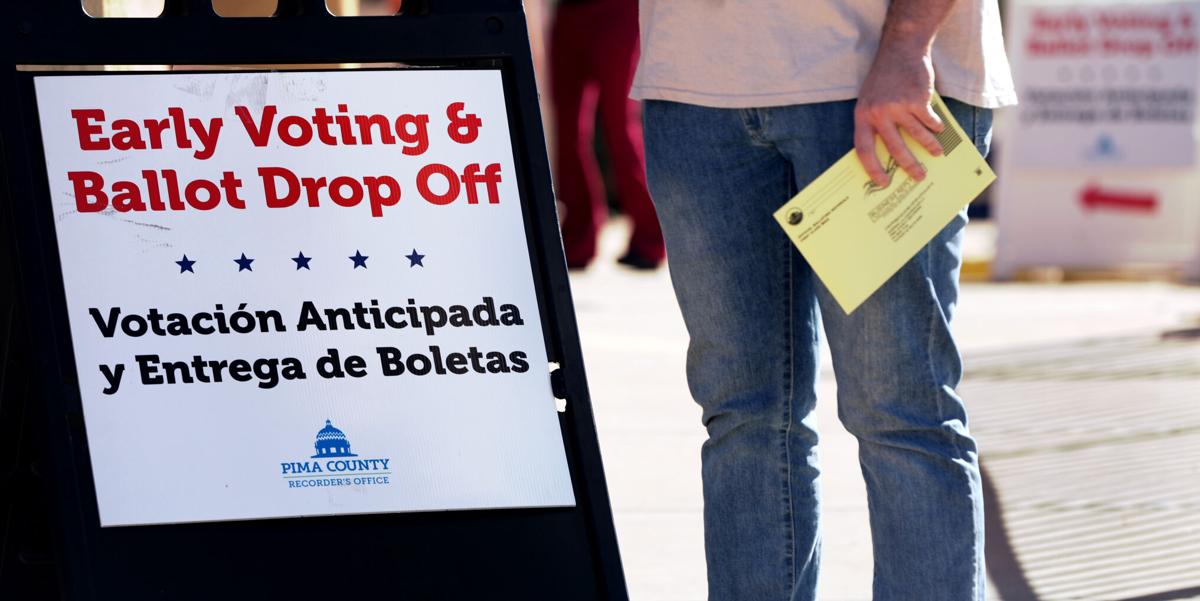Tucson’s mayor and council members are on track to end a history of lopsided losses at the polls when it comes to how much they get paid.
Tucson voters appear willing to dole out big pay raises, if unofficial election results hold.
Proposition 413 had 50.3% of the vote in favor of the raises, according to unofficial elections results that had not been updated Wednesday evening in time for the Star’s print deadline. That’s 557 votes ahead of voters who rejected a pay raise.
And 95% of the vote has been counted.
This year’s measure proposed the highest pay raise to date, giving the mayor and council members a nearly 130% and 220% boost, respectively.
Mayor Regina Romero, who won her second term Tuesday, said the pay raise isn’t just for those currently in office. It’s for candidates who have yet to run for office.
“That’s precisely the reason passing 413 is a good thing for the future of mayoral and city council candidates. I deeply believe it will allow for anyone in Tucson (to run),” she said. “You don’t have to be independently wealthy or rely on a pension or another job to be able to afford to run for council and mayor in the city of Tucson. (We’re cautiously optimistic but) it’s a very, very good thing in terms of getting those diverse experiences in, and to be able to afford to run.”
In 1999, Tucson’s mayor was given a salary of $42,000, while council members’ pay was set at $24,000. The salaries lag Tucson’s median household income of $48,058, according to U.S. Census data.
These salaries also lag begin the Pima County Board of Supervisors, who earn more than both the mayor and council but have a smaller budget, $1.8 billion, compared to that of the city’s budget of $2.2 billion.
In terms of other Arizona cities, while Tucson is the second-largest municipality in the state, the mayor and councilmembers’ current wages lag behind the five largest cities in state in compensation to elected leaders, according to the City of Tucson.
For council members here, a 40-hour work week would divvy their pay out to $11.54 per hour, $2.31 less than the current minimum wage.
“Right now, I’m a mom of two and married. My husband has really carried the load in terms of paying the bills for our family, for 16 years,” Romero said jokingly. “If I was a single mom, I don’t think I would have ever decided to run. I would have not been able to do it (or) afford it. Now, that option is there.”
Paul Cunningham, who was elected Tuesday night to his fourth term in Ward 2, said he’s humbled that the votes were even this close to begin with.
“I’m really humbled that it’s even as close as it was. (If it doesn’t pass this time) I think it will pass next time,” he said. “I think it demonstrates that people value what public servants do …. The raise is asking for what most middle-level-managers in any government agency makes.”
Councilmember Lane Santa Cruz of Ward 1 said Wednesday that the potential raises show Tucsonans feel like it’s a mistake to treat elected offices as a hobby.
“It’s not like it’s the only barrier, but (I think) it will be one less barrier for working-class people, for moms, for female heads of households, to feel like this is something to do,” they said. “I think it’s a mistake to treat elected offices like a hobby, or an extracurricular activity, because that’s not what our community deserves.
“They deserve folks that are going to work for them and also not have to stress about finances,” Santa Cruz said. “I had to step down from work to campaign the first time I ran, and so that means I used all my savings and went into debt …. I just think at the end of the day it adds stress to an already stressful job, and so that’s why we’re leveling the playing field so more people can see this is something they can do without sacrificing so much.”
In 1993, the city established a seven-member volunteer Citizens’ Commission on Public Service and Compensation. The group’s members were appointed by City Manager Michael Ortega and met seven times to come up with this year’s proposed raises while considering economic data, past elections and public input.





